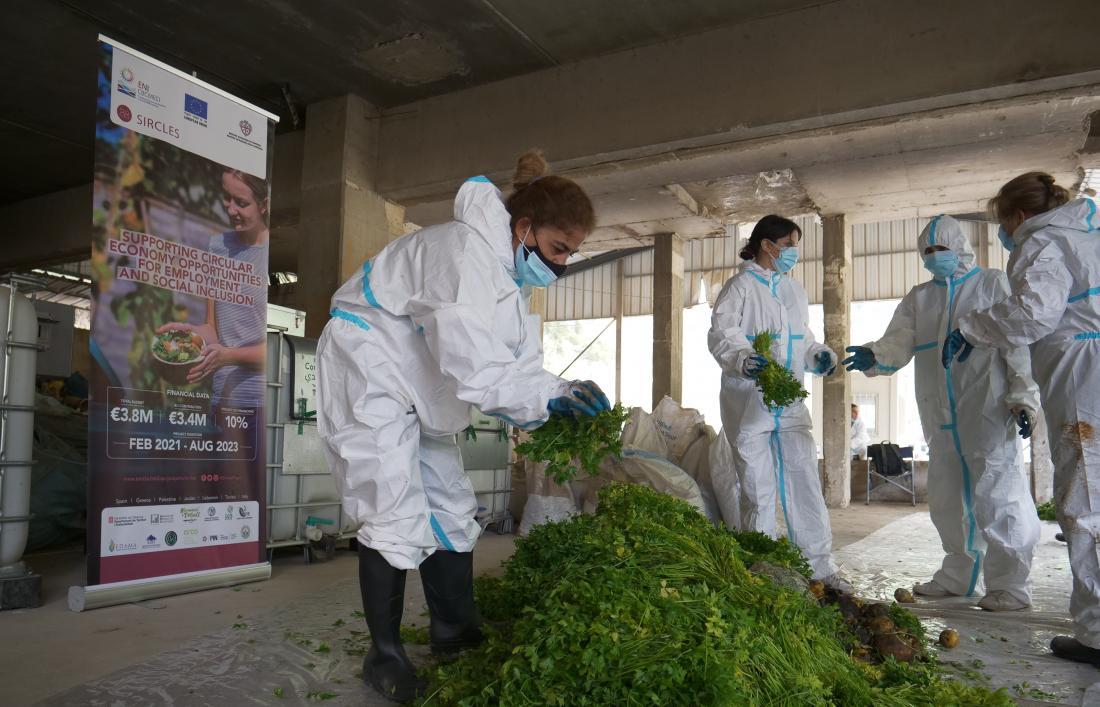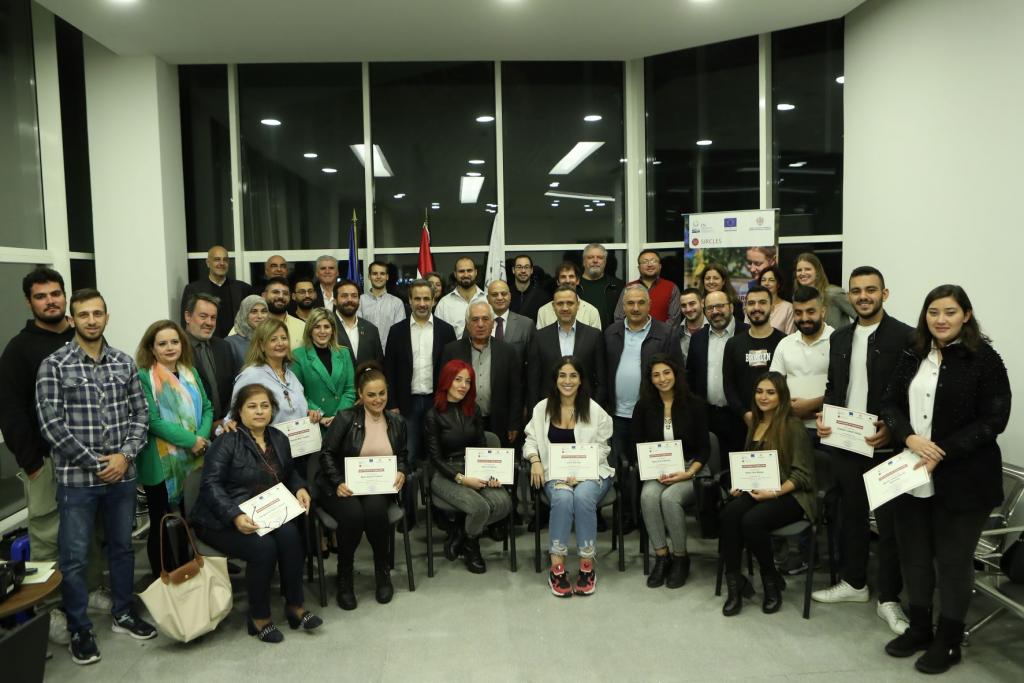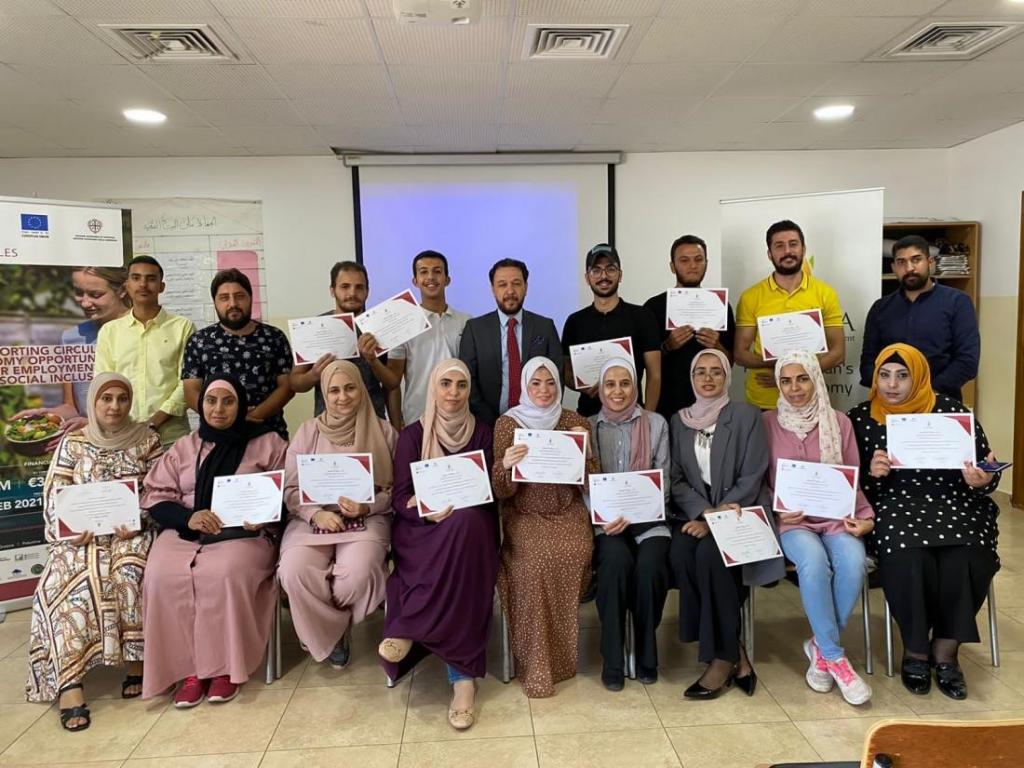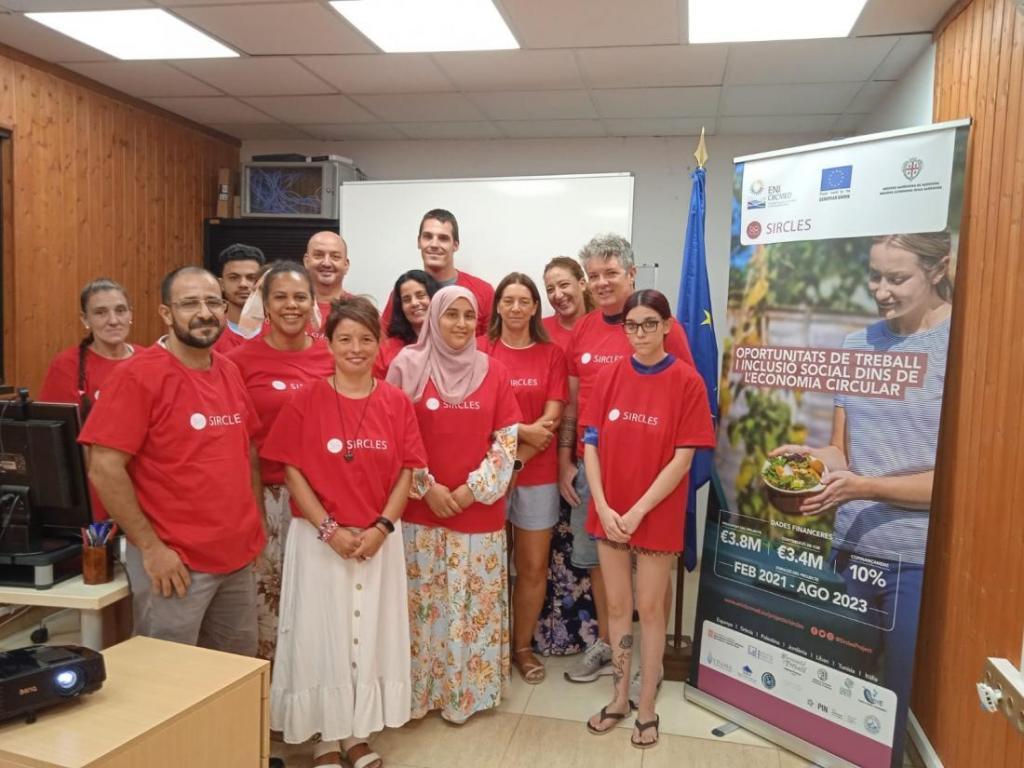SIRCLES empowered trainees in biowaste management and green and social entrepreneurship

SIRCLES training programme on hard skills in circular economy empowered a total of 286 trainees from Jordan, Lebanon, Spain, Italy, Palestine, and Tunisia by providing them with training in biowaste management and circular economy practices. These training programs focused on hard skills in circular economy and biowaste management, as well as green and social entrepreneurship. Based on surveys conducted at the end of the training programme, the positive feedback from the trainees indicated significant personal and professional development resulting from the training. The outcomes of the SIRCLES training were equally impressive. Trainees expressed satisfaction in acquiring skills for green jobs (96%) and an increased belief in the value of circular economy practices for sustainable development (98%).

Among the trainees, 31% held a bachelor's degree, 19% had a high school diploma, and another 19% had completed middle school education. Interestingly, 46% of the trainees had never experienced stable employment because the selection criteria of trainees gave preference to NEETS and women.
Our training program received overwhelmingly positive feedback from participants, resulting in a high completion rate. Trainees expressed great satisfaction with the training, reporting that it not only met but exceeded their expectations (98%). They appreciated the interactive nature of the sessions (97%) and the clear objectives set for each training module (99%). The trainers were highly praised for their availability (98%), ability to explain topics clearly (99%), and expertise in the subject matter (100%). Overall, the outstanding training experience and positive participant feedback highlight the success of our program.

Not only did our training program receive exceptional feedback from participants, but it also had a transformative impact on their lives. An impressive 94% of trainees described the program as a life-changing opportunity. As a result, they experienced a significant reduction in worries about the future (98%), a heightened sense of belonging within their communities (99%), and an increase in social acceptance and respect (100%). The training also proved instrumental in improving employment prospects within the biowaste sector (98%) and instilling a newfound confidence in seizing future opportunities (98%). The overwhelmingly positive outcomes of the program speak to its immense value and the positive changes it has brought to the lives of its participants.
Among the trainess, 38% were female, showcasing the project's commitment to inclusivity and empowering women in the field. The trainees in the green and social entrepreneurship program reported a high level of satisfaction with the training experience. They agreed that the topics, previously mentioned, were adapted to their knowledge levels (99%), encouraged participation and interaction (93%), and had clearly defined objectives (94%).

Amongst these 286 trainees, 166 have been employed by the pilot projects in the partner countries. Education and Work Foundation in Catalonia employed 11 workers, while NTUA and Organization Earth in Greece had 18 workers. House of Water and Environment in Palestine employed 17 workers, while EDAMA in Jordan employed 8 workers. The Rene Moawad Foundation in Lebanon employed 25 workers, Tunisia Eco-Tourism in Tunisia employed the highest number of workers with 80, and finally CIC Consorzio Italiano Compostatori in Italy employed 7 workers. These workers applied what they had previously learned during the training sessions in their new jobs.
SIRCLES project has made a substantial impact on trainees by equipping them with valuable skills for the green job market and instilling a deeper understanding of circular economy practices. Furthermore, the project has fostered a sense of empowerment, belonging, and increased social acceptance among participants. With the knowledge and skills acquired, these trainees are now better positioned to contribute to a more sustainable and environmentally conscious society.









